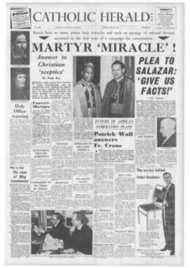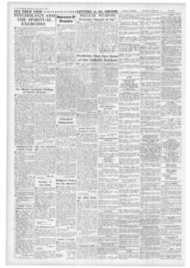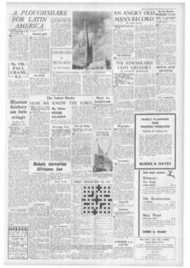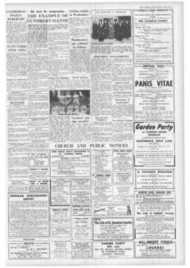Page 3, 30th June 1961
Page 3
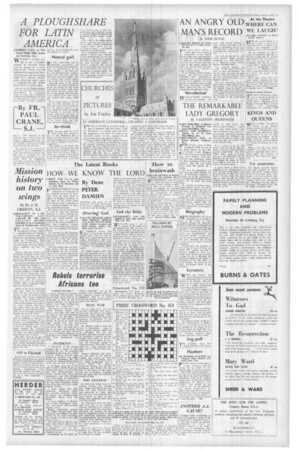
Report an error
Noticed an error on this page?If you've noticed an error in this article please click here to report it.
Tags
Share
Related articles
The Myth Of Ascendancy
Carthusian Martyrs
Lionel Johnson: Poet
Revealing The Goodness In The Nature Of Men
On The Bookshelf
THE REMARKABLE LADY GREGORY
By VALENTIN IREMONGER
LADY GREGORY, A Literary Portrait, by Elizabeth Coxhead (MacMillan, 30s.).
ESSAYS AND INTRODUCTIONS, by W. B. Yeats (MacMillan, 36s.). O'HOUL1HAN'S JEST, by Rohan O'Grady (Gollancz, 15s.).
PRIDE of place goes to Miss Coxhead's book on one of the great figures of Ibis cenairys theatre, Lady Gregory. III a (i this remarkable Anglo-Irish lady done nothing other than befriend and encourage Yeats, her place in literary history was assured. But she was much more than the patron of a genius.
Hers was the indomitable will that made the Abbey Theatre survive its threatened extinction repeatedty up to the mid-twenties. And finding that the theatre needed plays, she sat down and wrote them.Se She probably would have been a writer anyhow but her part in the building of the Abbey gave her life and work purpose and direction. Many of her plays, as Miss Coxhead rightly points out, have the authentic touch of genius and it is a pity that the exigencies of the contemporary theatre and the decline of the repertory theatre militate against their more frequent performance.
Biography
MISS COXHEAD'S book is not a biography but a considera1 tion of the events of Lady Gregory's literary life. Naturally, there is a good deal of biographical material in it and, in particular, the accounts 01 her subject's early life and of the evening of her days at Coale are sympathetically and sensitively handled. In the main, however, it is an examination of the plays, blessedly free of the critical jargon so much in fashion nowadays. Warm-hearted and generous in the writing, it is one of those rare books that remind one what a pleasure reading is. Miss Coxhead's main interest may be novelwriting but she is obviously the person to undertake the definitive biography of "the Old Lady". as Lady Gregory was known in the shyly affectionate idiom of the Dubliner.
Eccentric
,NvHAT are Yeats?". the apocryphal American is said to have demanded after a week in Dublin in the 'twenties. The publication of his essays (after an interval of, I think, twenty-seven years) may help us to findout. For myself, I find his languorous prose very trying but the study of his views as expressed in his essays and introductions is essential to an understanding of his poetry and his plays. Like most poets, he was cranky, eccentric and thoroughly unreliable in his judgements on his contemporaries. His views. however, are interesting not for the understanding they give us of those poets he deals with but for the way in which they illuminate the development of his own genius. The omission of his introduction to the "Oxford Book of Modern Verse" is a serious one but we can he grateful for the essays on the theatre which still retain their importance and from which many of our advanced theatrical practitioners still have a lot to learn.
Leg-pull publishers claim that Rohan O'Grady is the newest
arrival in Irish fiction since
O'Casey and O'Flaherty almost forty years, which seems a long time for Ireland to have been without novelists. Somebody must have been pulling Mr. Gollancz's leg: this book is about as Irish as the green beer they sell in New York on St. Patrick's Day.
It is a novel set in the 18th century and concerns the fight between a local hero and the English garrison commander. The Irish neither think, speak or behave. now or at any other time, like the characters in this book indeed, by changing the names, it ebuld have made a neat tale of tribal warfare in central Africa.
1 nearly burst a blood-vessel laughing at the "closing scene of grim and hair-raising power" that gives the book its title; but I won't spoil it for any reader that manages to wade through the florid, turbid prose to join in the jest. Mr. Gollancz might try visiting Ireland next time rather than America for an Irish novelist,
blog comments powered by Disqus


